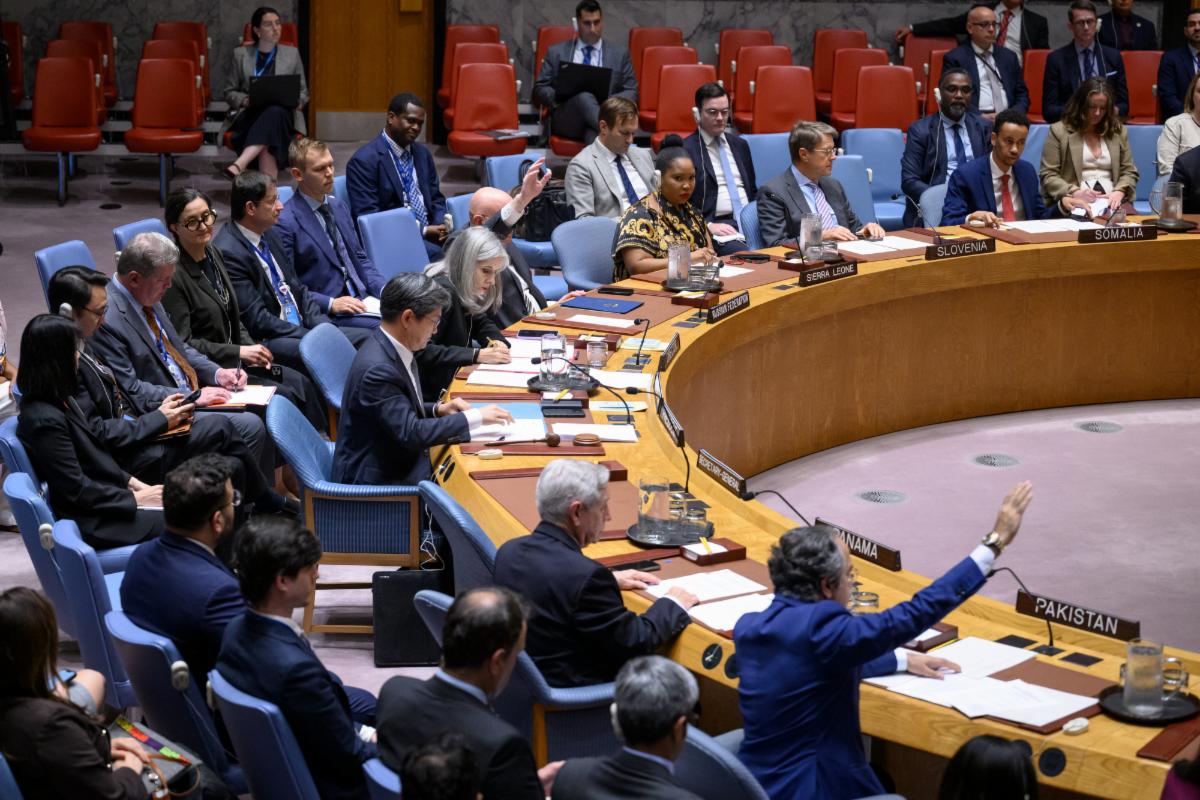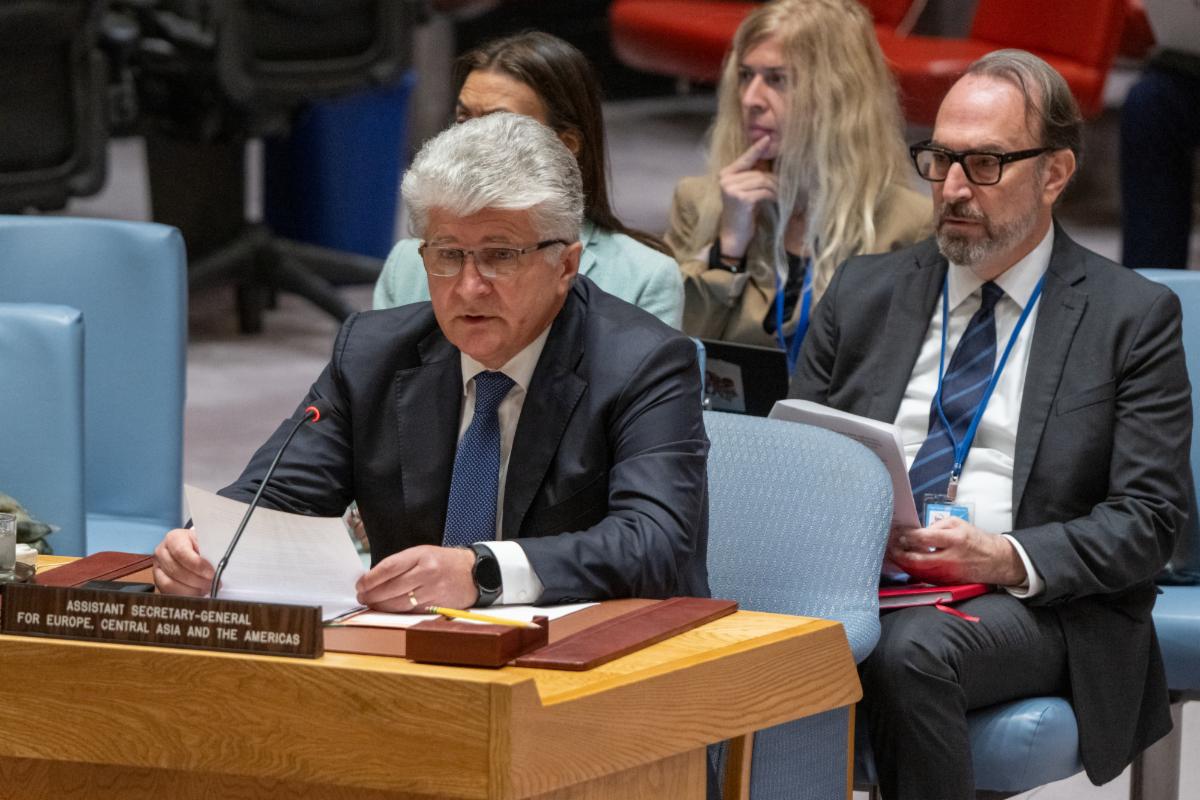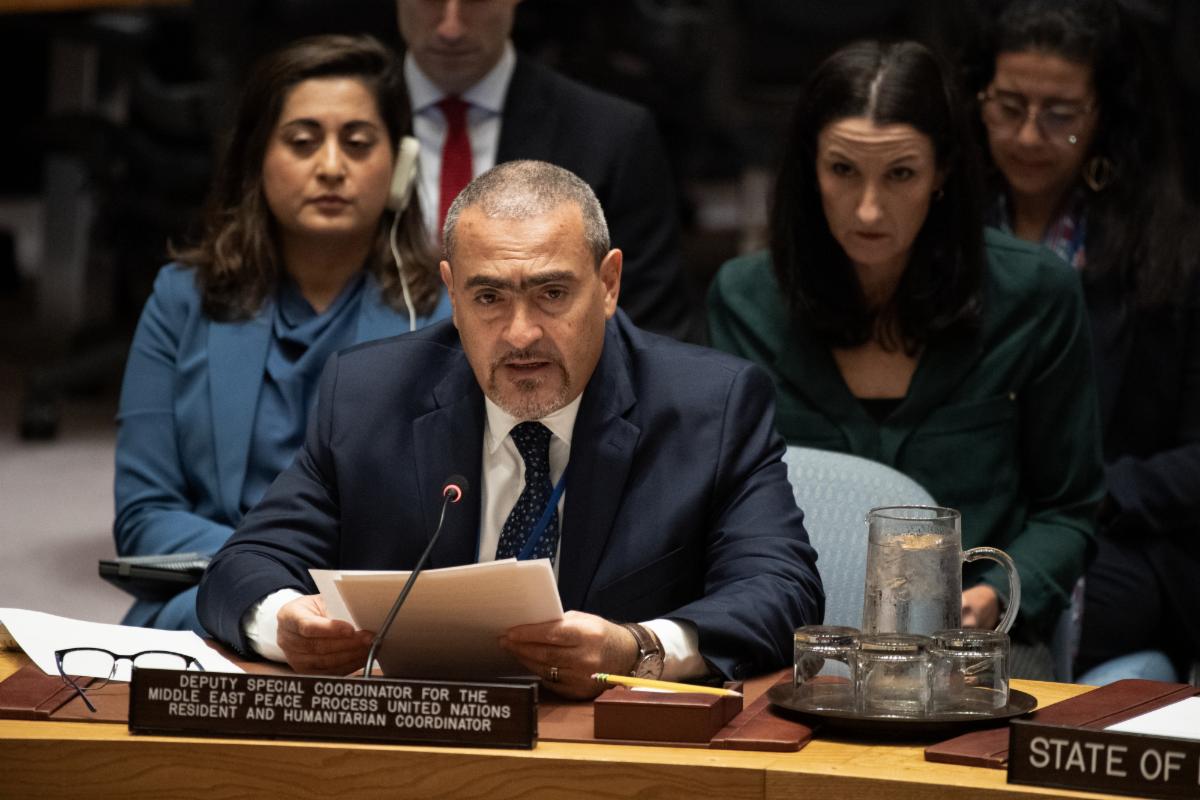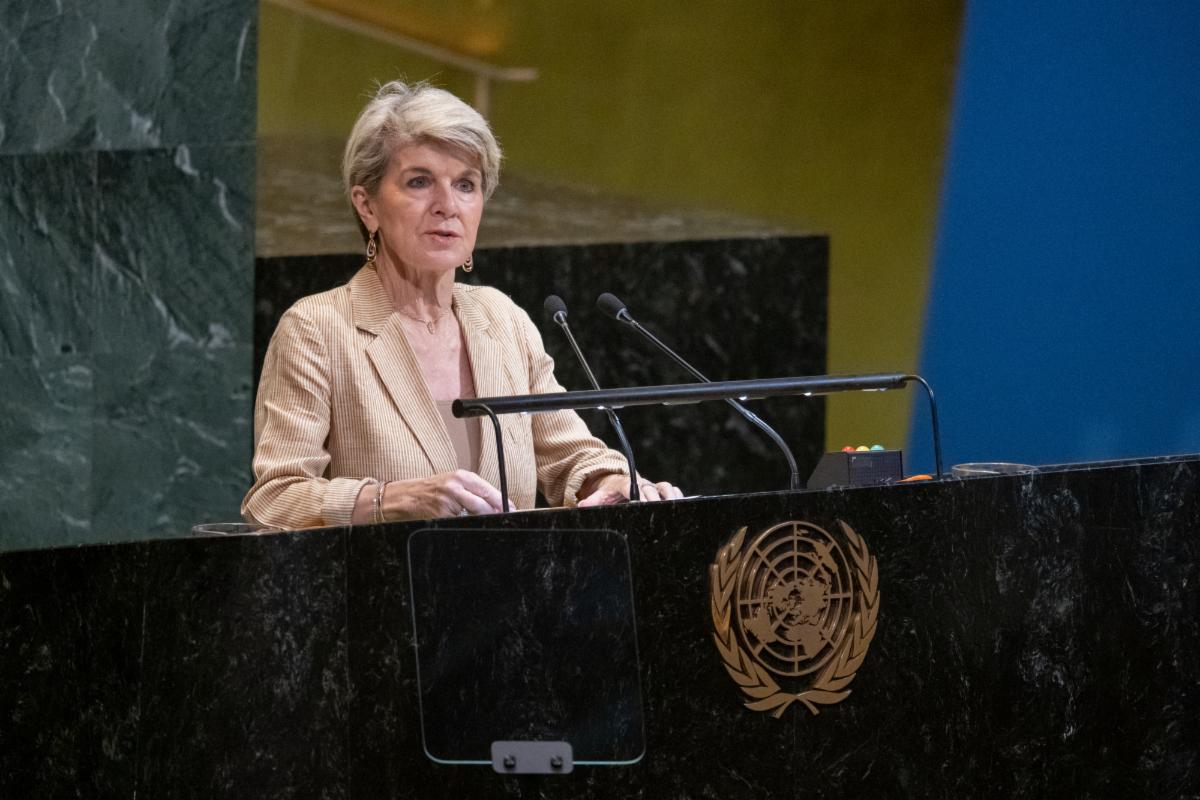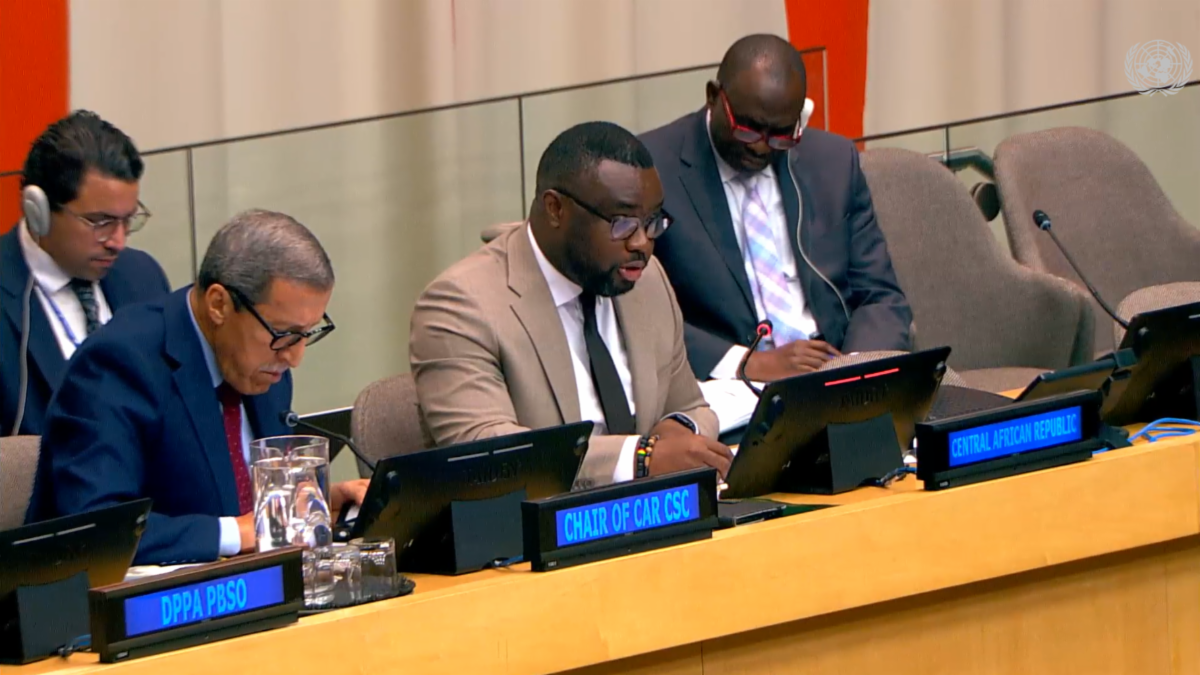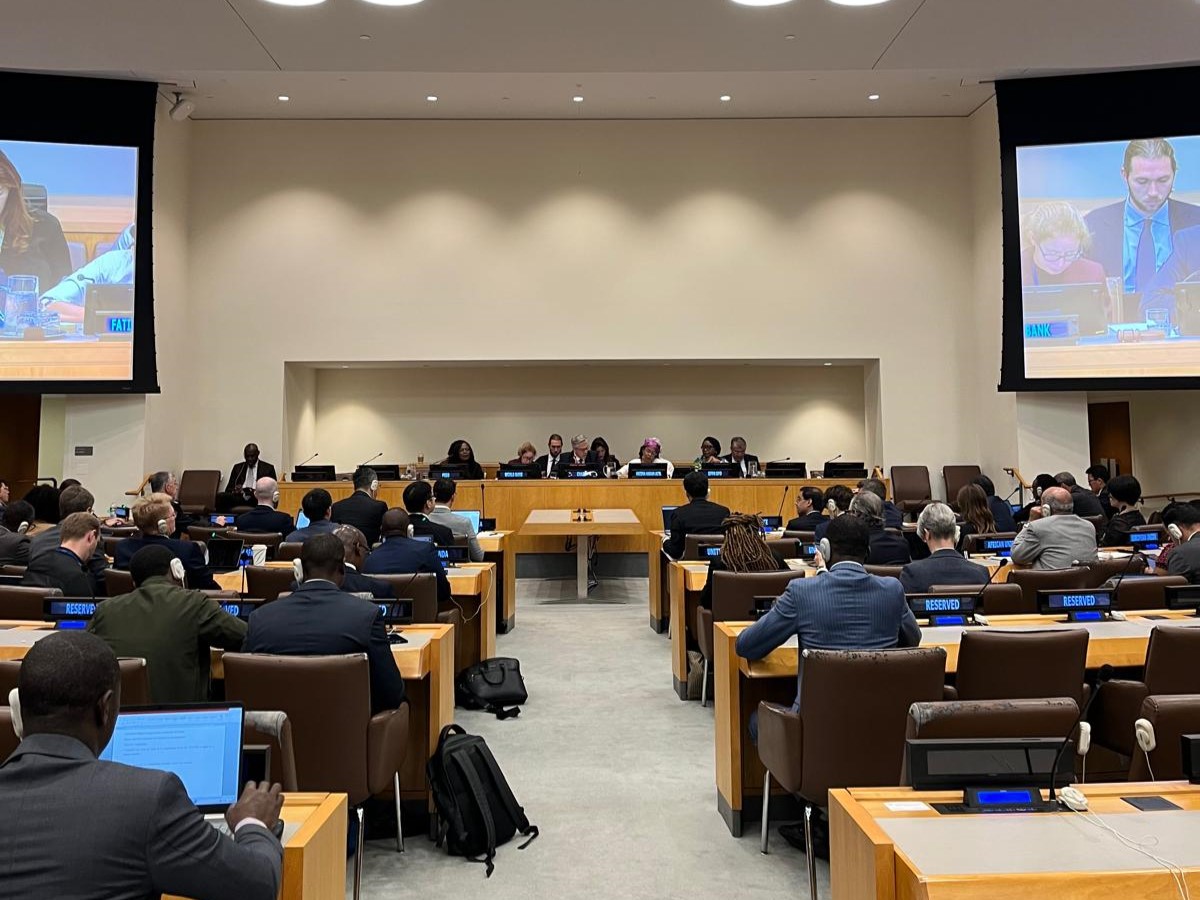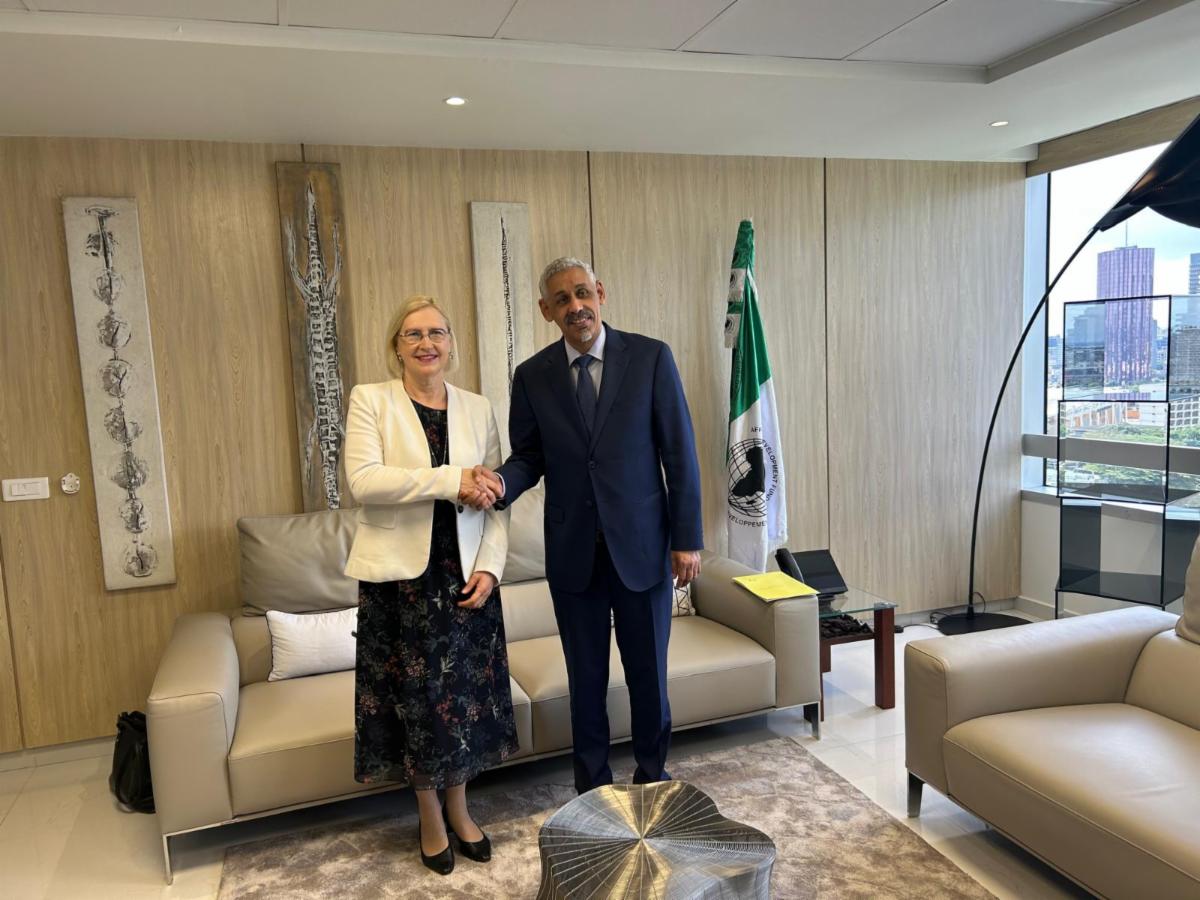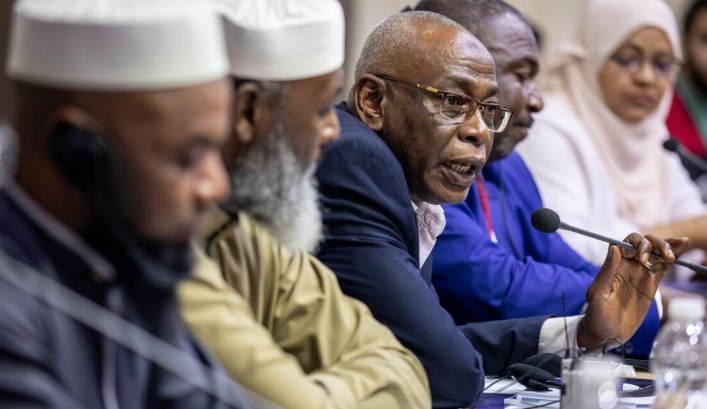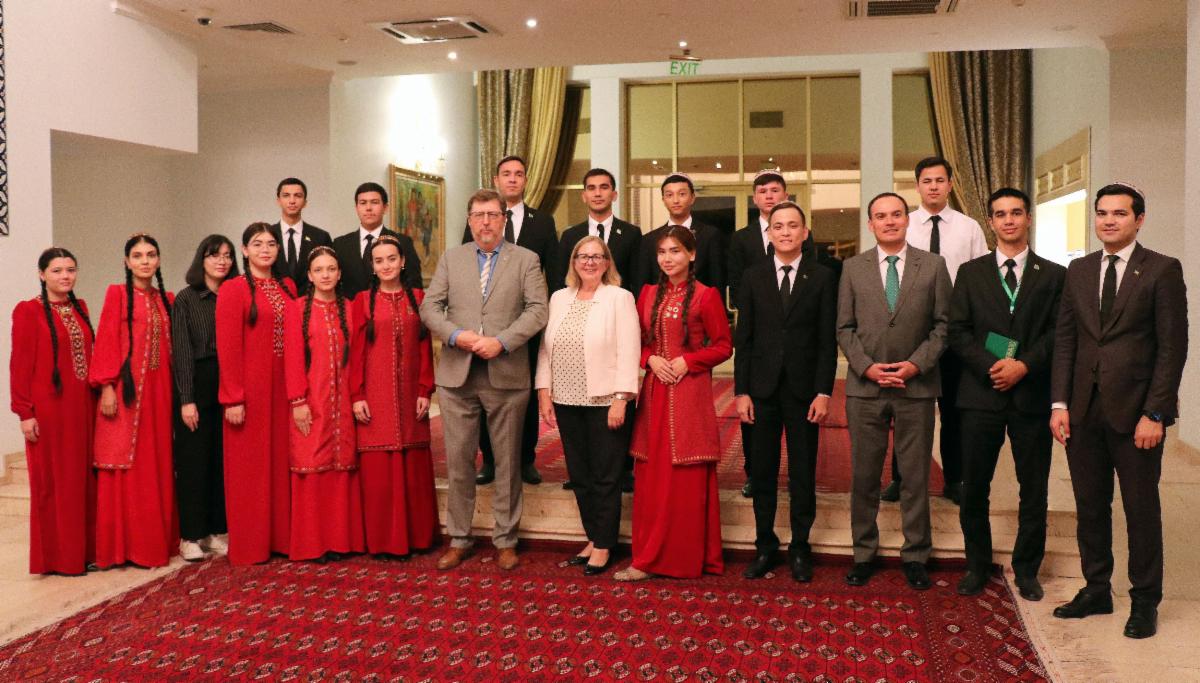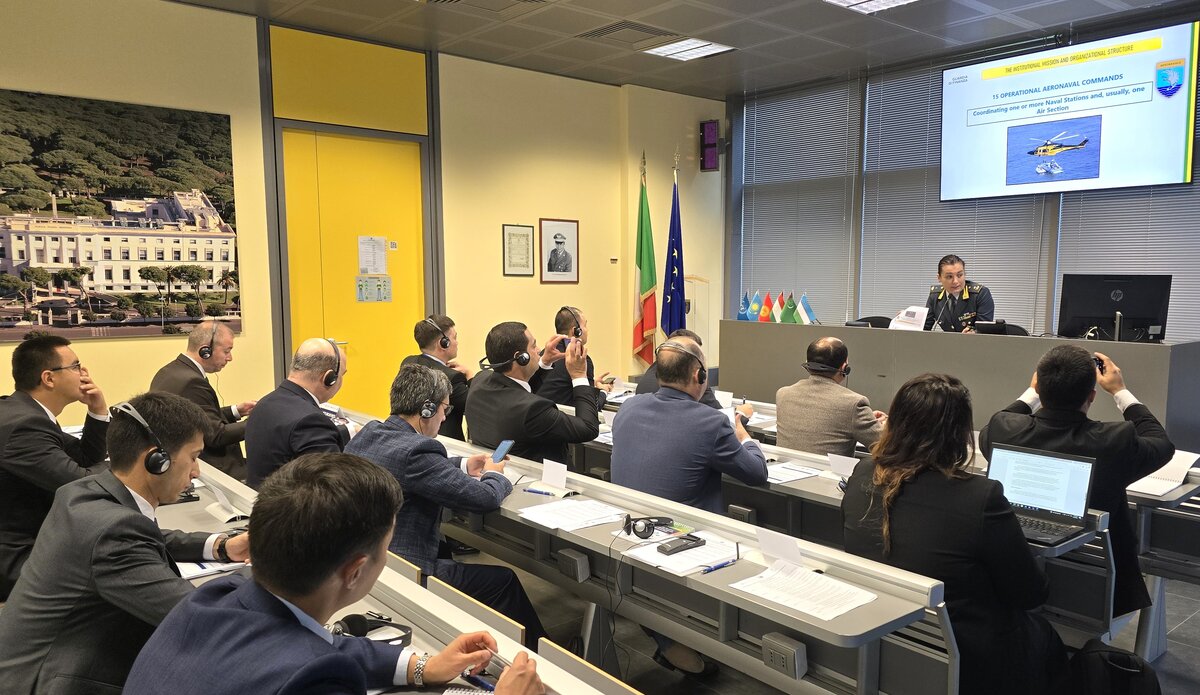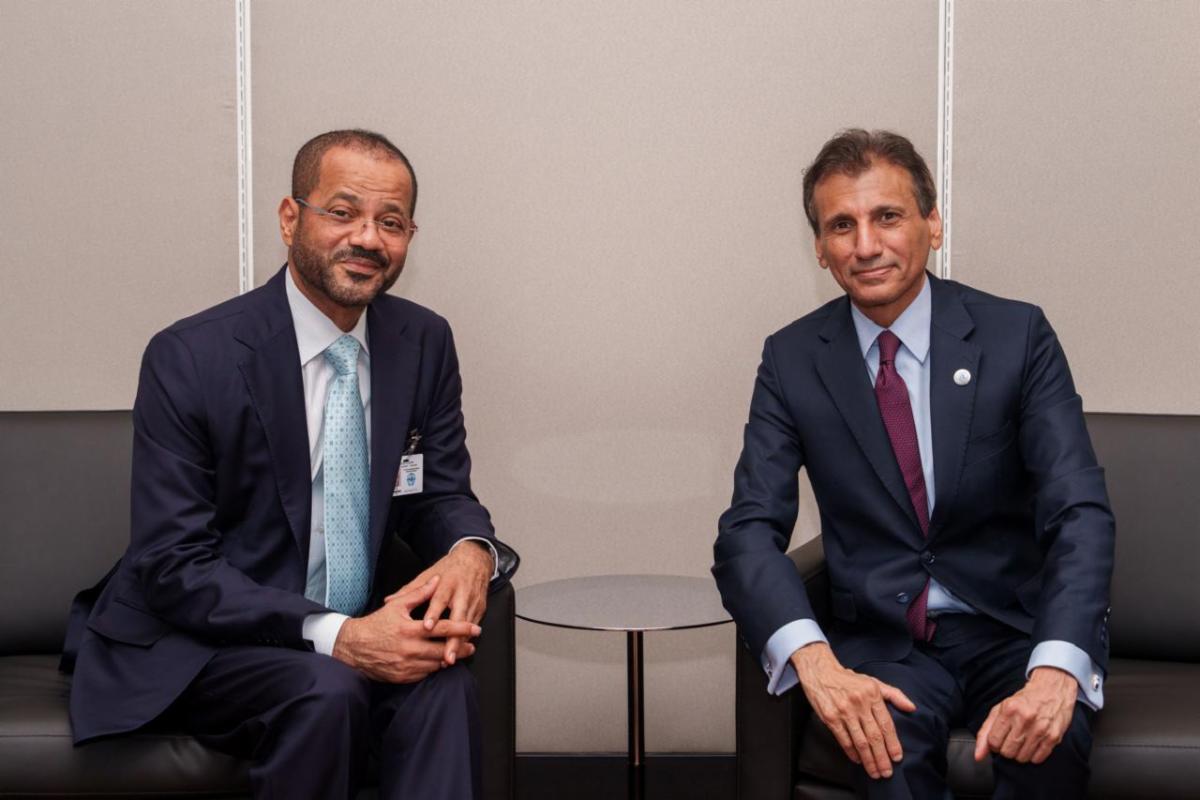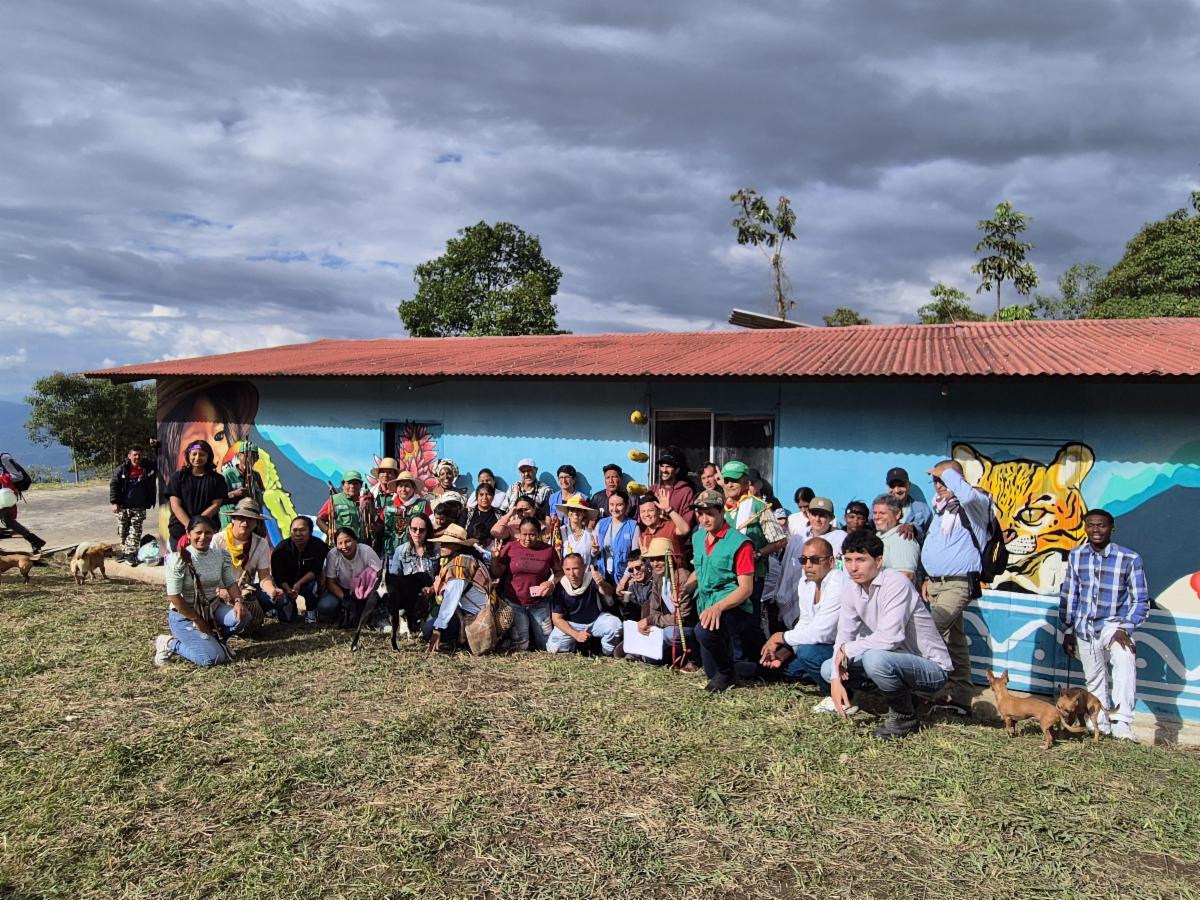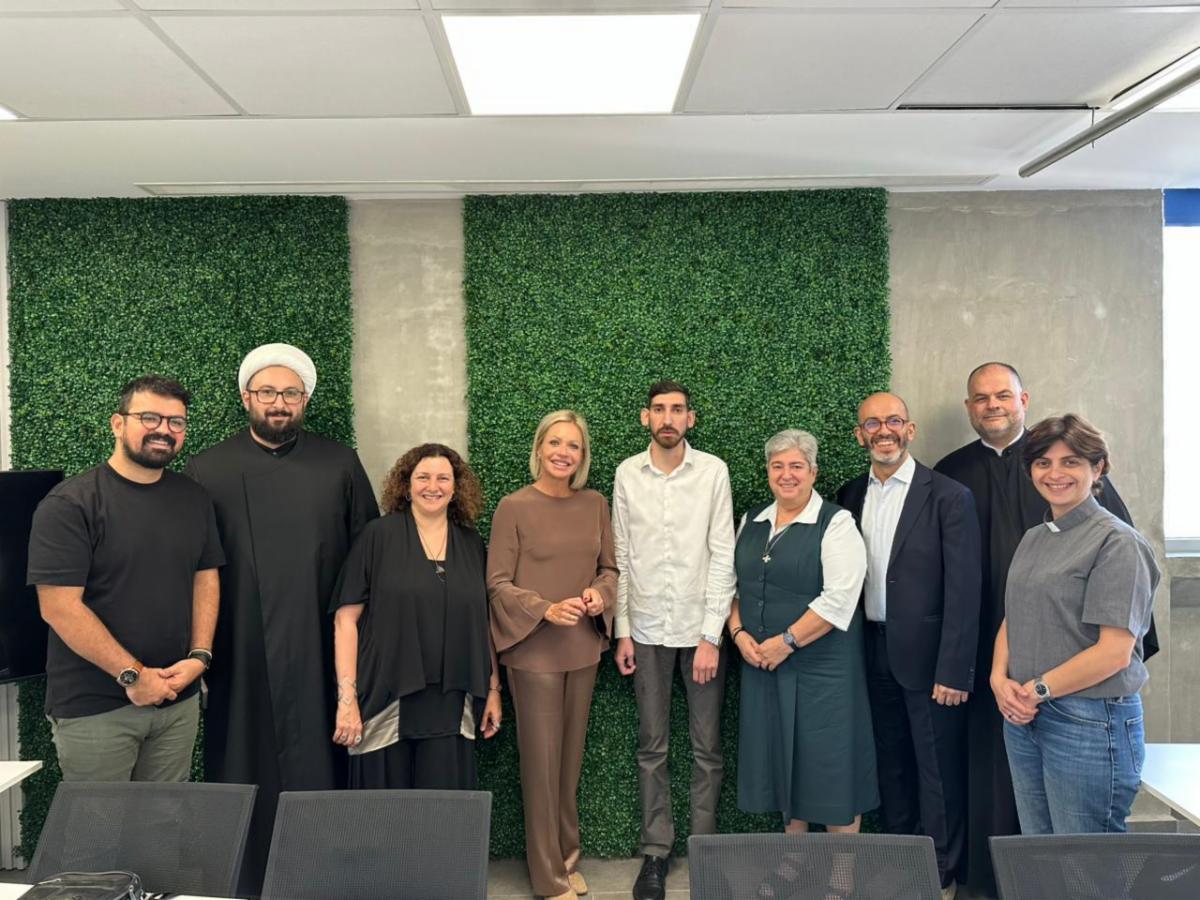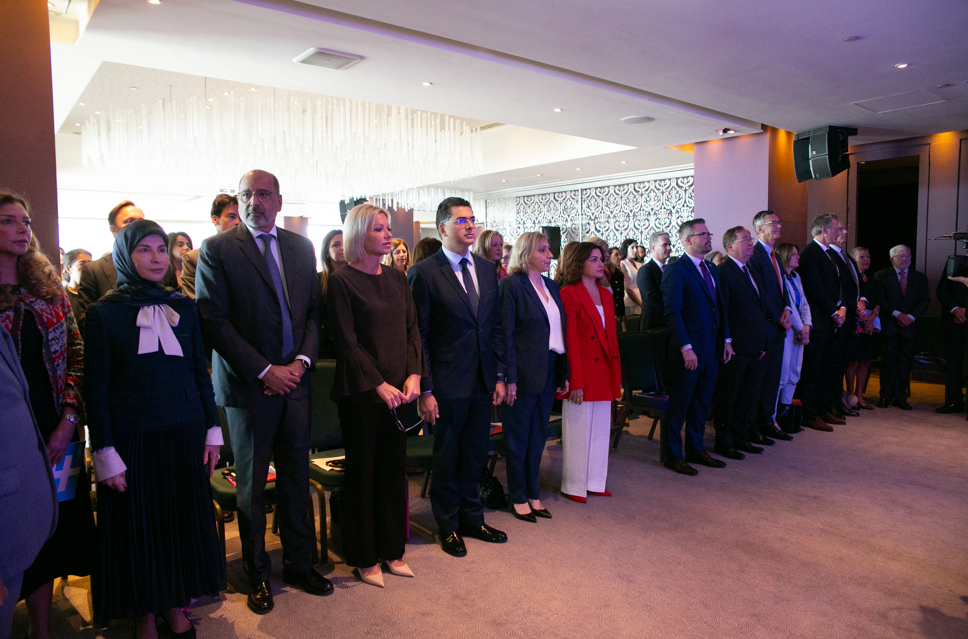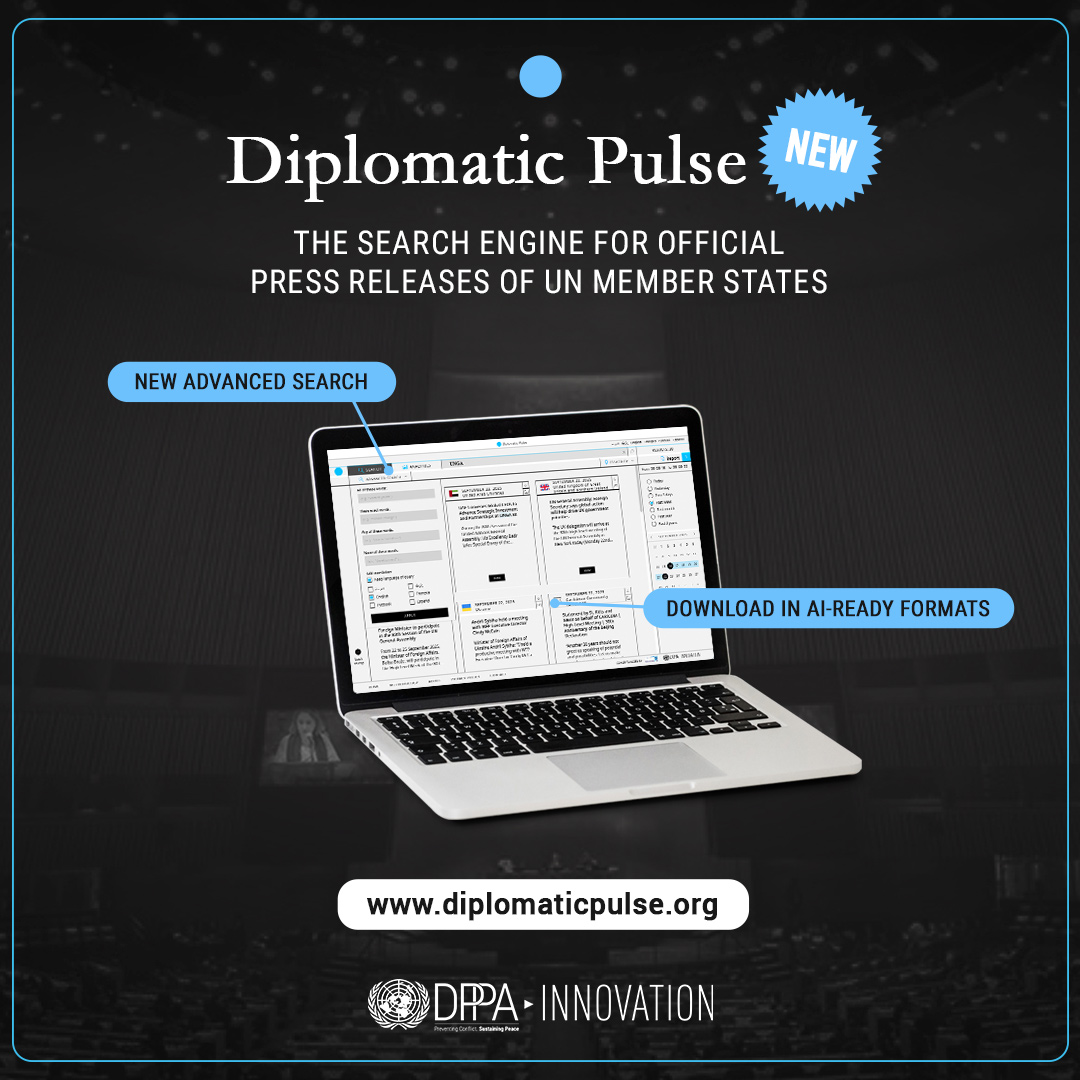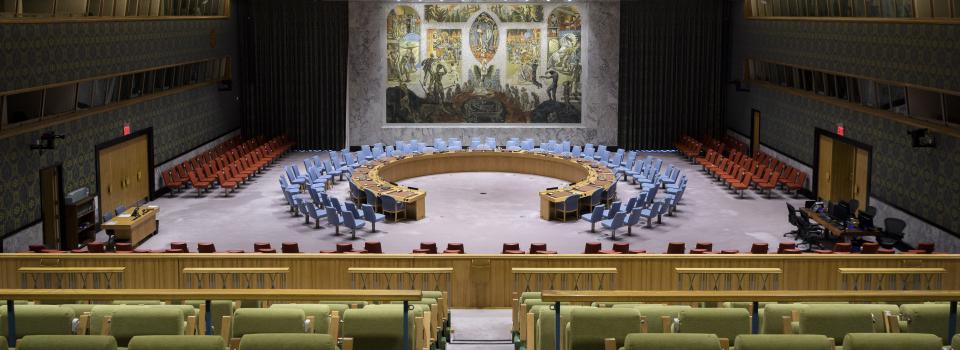Assistant Secretary-General for Europe, Central Asia and the Americas Miroslav Jenča
and Special Representative-Designate of the Secretary-General for Colombia
Remarks to the Security Council on Colombia
New York, 3 October 2025
Mr. President,
I am honored to have been appointed by the Secretary-General as his Special Representative in Colombia. I am grateful for the opportunity to brief you today as I prepare to formally assume these new responsibilities in Bogotá later this month.
The Security Council’s involvement has been fundamental to the achievements of Colombia’s peace process. I look forward to working closely with the Council to help ensure that Colombia continues to advance on a path to lasting peace and security.
Asimismo, deseo reconocer la participación hoy de Su Excelencia Leonor Zalabata, Representante Permanente de la República de Colombia. Yo pienso que la presencia de la embajadora es muy importante. La embajadora es una mujer de la Sierra Nevada que es también testigo de lo que ha pasado allá y también testigo de lo que trajo la implementación del acuerdo de paz. Expresamos nuestro agradecimiento al Gobierno de Colombia por su constante colaboración con la Misión de Verificación. En su último informe al Consejo, el Secretario General destaca los esfuerzos del Gobierno y solicita medidas decisivas durante el resto de su mandato para lograr la implementación integral del Acuerdo Final de Paz.
Mr. President, Excellencies,
In September, immediately following my designation, I carried out a preparatory visit to Colombia. I wanted to reiterate the Secretary-General’s strong commitment to the peace process, and to be able to bring to this briefing firsthand impressions to complement his report.
I met during the visit with signatory parties to the Agreement, and a broad range of interlocutors, across the political and social spectrums, in Bogotá and in the field.
The Foreign Minister and the heads of key government offices responsible for peace implementation presented their work across the array of issues addressed by the Agreement – from rural reform, to reintegration, security guarantees, and actions of specific attention to marginalized communities. They highlighted progress but also described frankly the areas where implementation has come up short over the years and needs to be reinforced through concerted state actions.
National leaders of the Comunes party and former combatants I spoke with at the local level shared their expectations and concerns -- security foremost among them -- while reaffirming their commitment to the Agreement and to their peaceful and productive reintegration into society.
Steps to accountability for serious crimes of the conflict were also moving forward during my visit. I met with the President of the Special Jurisdiction for Peace on the eve of the Court’s issuance of the first sentences against former FARC and members of the security forces - a process that is crucial for ensuring truth, justice and reparations to victims. We discussed the critical role ahead for the Mission, as mandated by this Council, to verify compliance with and implementation of the sentences.
I am also grateful to the civil society leaders who generously shared their perspectives about the peace process: women’s leaders, representatives of Indigenous and Afro-Colombian communities, peasant, human rights and youth activists, political sectors and members of the private sector who are investing in peace.
Mr. President,
Consolidating peace in Colombia after decades of conflict is a complex work-in-progress. And as we meet today the country is entering a delicate period that poses additional challenges.
The coming national elections are increasing political tension and polarization. Current fiscal constraints impinge upon financing for peace. Recent tragic acts of violence and patterns of insecurity in certain regions are prompting urgent calls to enhance security.
At the same time, I was struck by the determination of so many actors in Colombia to continue advancing in the implementation of the Final Peace Agreement -- convinced that it remains the country’s essential roadmap for building peace. I heard expressions of appreciation across the board for the work of the Verification Mission and UN system in Colombia, and for the active engagement of the Security Council.
Mr. President,
As the Secretary-General states in his report, Colombia has come a long way over the years on the path to becoming a more peaceful and secure nation. Nevertheless - and especially given recent violence -- he stresses that every effort must be made to ensure that the country does not slip backward, but rather continues to move forward along a trajectory of expanding peace and security. The Peace Agreement, he states, is central to the solution.
Among its key provisions are rural reform —with the potential to unlock greater development opportunities and prosperity across the country— and security guarantees —which can contribute to tackling complex criminal dynamics and illegal economies. Implementing these chapters of the agreement can contribute decisively to stabilizing regions that remain today severely affected by conflict, by extending to these areas an effective presence of the state. Immediate actions coupled with sustained long-term investments are needed to fully realize the transformative potential of the Agreement. With regard to the rural reform, the Secretary-General has welcomed recent progress on land reform, addressing a key factor long enmeshed in Colombia’s armed conflict.
Mr. President, Members of the Council,
The Secretary-General welcomed the issuance of the first restorative sentences by the Special Jurisdiction for Peace as an historic milestone in the pursuit of justice for some of the most serious and emblematic crimes committed during the conflict. This is also a pivotal moment in the implementation of the Agreement.
The conflict inflicted immeasurable suffering on victims and their families. The transitional justice process is delivering unprecedented convictions and acceptance of responsibility by those who committed serious crimes, while involving victims in the process and offering redress to them through restorative action to be carried out by the perpetrators.
The Special Jurisdiction for Peace has announced that such restorative actions include the search for persons who went missing during the conflict, the removal of mines and risk-reduction activities, and the construction of memorials and community infrastructure.
The Verification Mission stands ready to independently and rigorously verify compliance and implementation. Of immediate necessity is the establishment by the Government of the conditions for the prompt translation of these sentences into restorative actions on behalf of the victims. The Special Jurisdiction for Peace called last week on the Government and on Congress to urgently assign additional budgetary resources for this purpose.
Mr. President,
The reintegration of the more than 11,000 former FARC-EP who laid down arms and remain actively part of the peace process is central to the integrity of the Agreement. As described by the Secretary-General in his latest report, this is also a security imperative for Colombia, key to preventing the recurrence of conflict.
The Mission is verifying the relevant commitments on reintegration, highlighting especially issues of security and sustainability. With nearly 500 former combatants killed since the signing of the Agreement, enhancing security for them and – equally important -- for communities, is critical. Yet despite this major concern, we see an impressive commitment of the vast majority of those who laid down arms to peacefully reincorporate into society. At the Llano Grande reintegration area where I traveled, in the department of Antioquia, former combatants were growing coffee and building their first durable housing with government support, since laying down arms nine years ago. They were also joining in common projects with a nearby community.
Various interlocutors stressed to me that that insecurity remains the greatest threat to peace. Persistent violence in various regions of Colombia —fueled by illegal economies and disputes by armed groups over territorial control— is seriously impeding progress in implementing the Agreement, and severely impacting the civilian population. As the Secretary-General has argued, effective security strategies are needed in combination with peace policies. The armed groups must cease all threats and violence against the civilian population.
It will be particularly important for the State to ensure the safe conduct of the coming elections. This was a call conveyed strongly during my visit, and one that the Mission will be following closely in the months ahead. There can be no repeat of atrocious acts of violence such as the assassination of Senator Miguel Uribe.
Mr. President,
Let me conclude by offering the Secretariat’s full readiness to assist the Council as it turns soon to the renewal of the Mission’s mandate.
Since its establishment, the Mission has worked through different phases of the peace process and with successive administrations in Colombia who, with varying approaches, have shouldered the responsibility to implement the Agreement. Throughout, the Mission has provided objective verification and reporting, while working proactively to identify solutions and foster constructive relations among all involved.
The Mission has also advocated for the adoption of measures to help prevent security incidents, raising the alarm on numerous occasions when threats to civilians, including former combatants, were identified. As stated to me repeatedly during my visit, the Mission’s presence builds confidence. The voice of the Security Council, informed by the Mission’s reporting, helps to drive progress on the ground.
I am confident that the Mission can continue to play a critical role while adapting to changing needs and circumstances. As part of the UN80 exercise, the Secretary-General proposed significant efficiencies while preserving the Mission’s core capacity to deliver on its mandate. One of the key assets is its presence in the regions prioritized by the Peace Agreement, including some of the most remote and conflict-affected areas. In line with this broader organizational realignment -- the Mission has already taken steps to streamline operations, including by reducing personnel previously deployed to verify the now inactive ceasefire between the Government and the National Liberation Army (ELN).
Mr. President, Members of the Council,
Colombia is a rare case in which the Council has been able to respond with targeted assistance to a nationally owned peace process. These are favorable circumstances for the United Nations to continue to make a positive and focused contribution.
I thank you for your attention. I pledge to do my utmost to exercise sound leadership on the ground in pursuit of our collective work for peace and security in Colombia.

